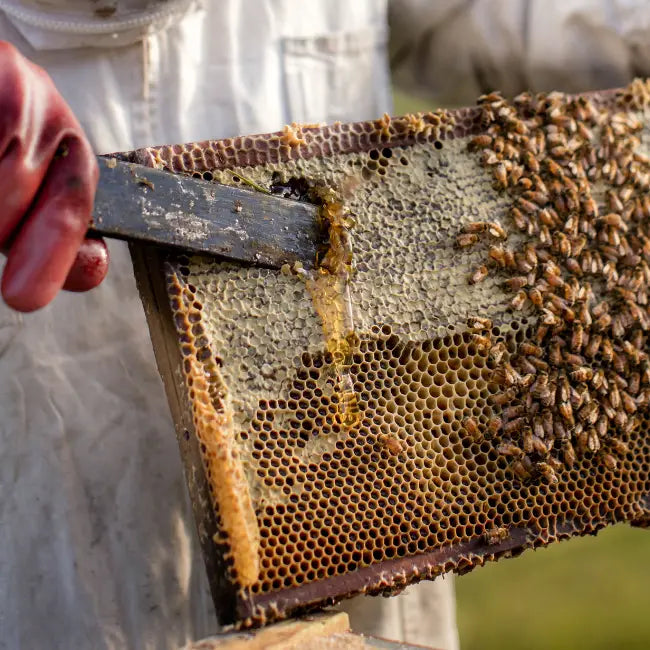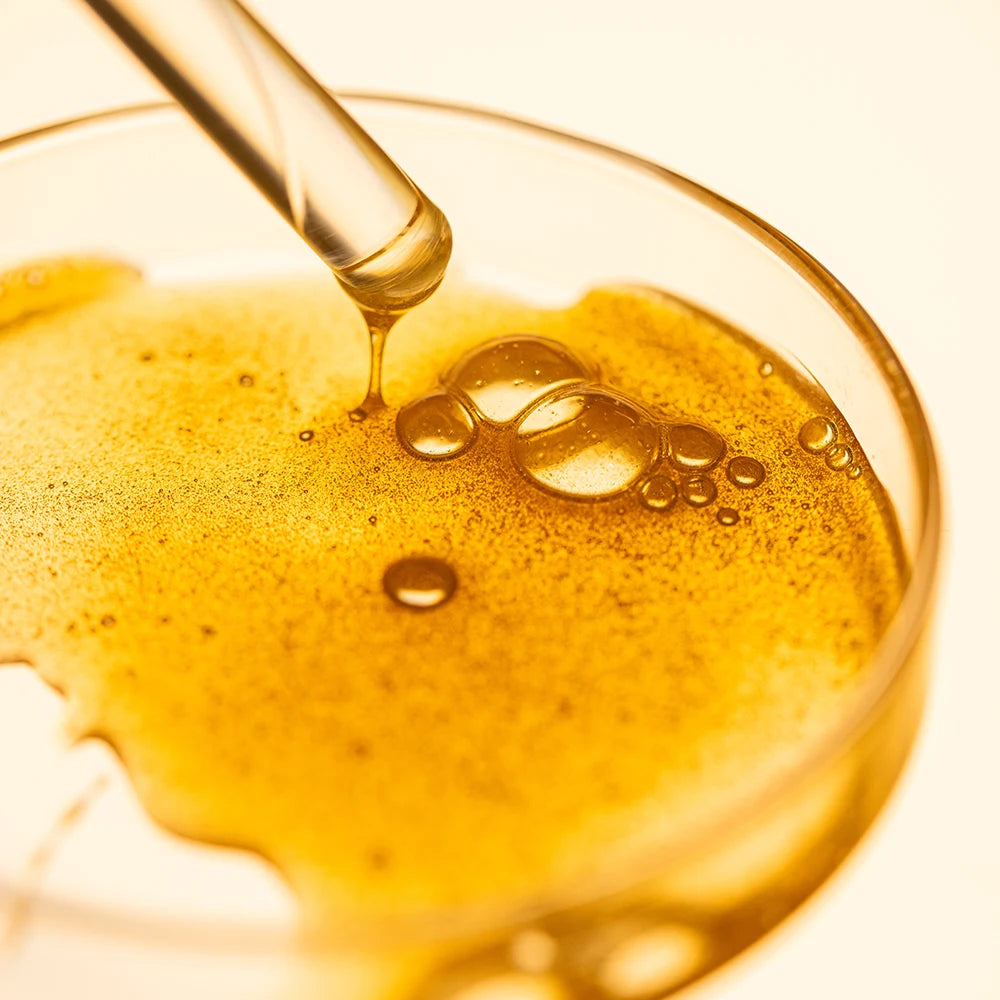

What is so special about Mānuka honey?
What is Mānuka Honey?
Mānuka honey is a type of honey native to New Zealand, harvested by bees from the nectar of the indigenous mānuka shrub, Leptospermum scoparium. The manuka shrub grows wild in New Zealand’s most remote areas and flowers for just 2-6 weeks each year.
The mānuka shrub’s short flowering season means it takes immense skill, planning and resources to harvest manuka honey, which is why we never take a single, precious drop of manuka for granted.
What Does Mānuka Honey Taste Like?
Mānuka honey has a distinctive sweet taste; like a good wine, it grows in flavour and potency and darkens over time. Pure mānuka honey has a more intense flavour and darker colour - these are also indicators that your honey contains more beneficial compounds.

What Makes Mānuka Honey Different?
Manuka honey from New Zealand contains over 2,000 individual compounds - more than 20x higher than some types of pasture honey, such as clover honey.
This makes manuka honey chemically more complex, as it contains a wide array of bioactive micronutrients, including:
- Proteins
- Enzymes
- Amino acids
- Minerals
- Plant-based polyphenolic compounds
- Micronutrients support our immune system, energy production and play a key role in our body’s growth and development.

What Are The Properties of Mānuka Honey?
Mānuka honey has antimicrobial properties; in fact, the high sugar content, low pH and low water content of all types of honey creates an unfavourable environment for bacterial growth*.
Most types of honey also release bacteria-killing hydrogen peroxide when they’re diluted. This hydrogen peroxide is generated by an enzyme known as glucose oxidase. Bees add glucose oxidase to nectar when they’re making honey.
Mānuka is different to other honey types due to its unique non-peroxide antimicrobial activity. This type of antimicrobial activity means manuka honey is highly stable compared to types of honey with peroxide-based antimicrobial activity. This makes manuka ideal for antimicrobial uses, such as wound care.
Mānuka honey is also abundant in other bioactive plant-derived compounds, such as phenolic acids and flavonoids**. These are known for their antioxidantand anti-inflammatory properties, which may explain some of the health benefits reported for mānuka honey.
*(Molan 1992a, Bogdanov 2004)
**(Russell 1990, Stephens 2010)
